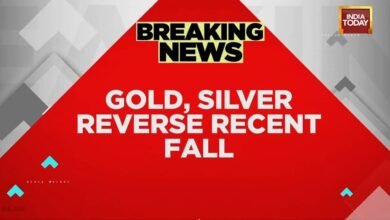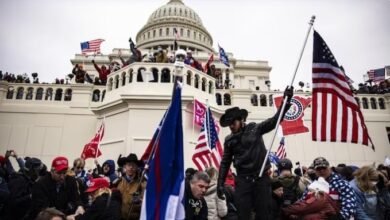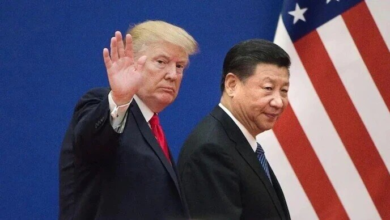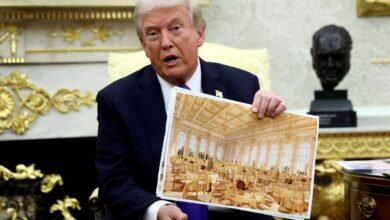Ukraine-Russia war: Pakistani mercenaries fighting for Moscow amid closer Russia-Pak ties?
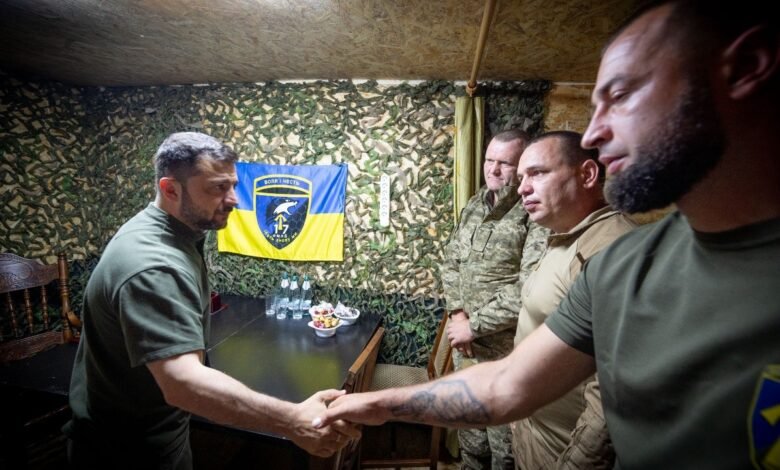
Ukraine-Russia war: Pakistani mercenaries fighting for Moscow amid closer Russia-Pak ties?
Ukrainian President Volodymyr Zelenskyy has claimed that his troops in northeastern Ukraine’s Kharkiv region were encountering foreign mercenaries, including those from Pakistan, China, Tajikistan, Uzbekistan, and African nations, fighting alongside Russian forces. This statement, made during a frontline visit with the 17th Separate Motorised Infantry Battalion, has raised questions on Pakistan’s involvement in the Russia-Ukraine war, and its diplomatic ambitions as it develops closer ties with Moscow.
Zelenskyy wrote on his X account, “Our warriors in this sector are reporting the participation of mercenaries from China, Tajikistan, Uzbekistan, Pakistan, and African countries in the war. We will respond.”
This stands in stark contrast to earlier reports from 2023, which alleged Pakistan’s involvement in the Russia-Ukraine war through the supply of arms to Kyiv.
A US-based investigative media outlet, The Intercept, reported that the US helped Pakistan secure an IMF bailout through a secret arms deal involving supplies to Ukraine, while the BBC Urdu stated that Pakistan earned $364 million through deals with US companies to provide 155 mm artillery shells and rockets to Ukraine.
Pakistan’s Foreign Office on Tuesday vehemently denied both the arms supply allegations and Zelenskyy’s recent claims, calling them “baseless” and reaffirming its neutrality in the Russia-Ukraine conflict.
However, Zelenskyy’s claims come at a time when Pakistan is warming ties with Russia.
It must be noted that the recent agreement to restore and modernise the Pakistan Steel Mills (PSM) in Karachi, signed on July 10, at the Pakistan Embassy in Moscow, marks a significant step in this relationship.
PAKISTAN-RUSSIA TIES: COMPLICATED HISTORY BUT ON UPSWING
While Pakistan historically received massive Soviet support for infrastructure, it was also aligned against the USSR during the Cold War.
For instance, the Pakistan Steel Mills, built with Soviet assistance in 1971, is a symbol of Pakistan-Russia ties.
But the company fell into heavy losses, recording a deficit of PKR 118.7 billion by 2013, largely due to mismanagement and the impact of the global recession.
Now, Islamabad’s ties with Moscow have been revived with the agreement to restore and modernise the PSM amid deep economic strains in Pakistan.
But during the Cold War, Pakistan aligned itself with the West by joining anti-communist alliances like the Southeast Asia Treaty Organisation (SEATO) and Central Treaty Organisation (CENTO), opposing Soviet interests.
At present, Pakistan is grappling with a deep economic crisis. Hence, its approach of maintaining favour with global powers, such as the US, China, and now Russia, whether through business deals, diplomatic flattery, or offering strategic bases, raises questions about its motives.
Notably, Russia outbid China, which had also vied for the contract, leveraging its role in building the steel mill.
IS PAKISTAN DIVERSIFYING ITS ALLIANCE BEYOND US, CHINA?
Pakistan moving closer to Russia suggests Islamabad is diversifying its alliances to bolster its geopolitical stature and is seemingly seeking support beyond traditional partners like the US and China.
Amid growing Pakistan-Russia ties, the presence of Pakistani nationals in the conflict zone, as claimed by President Zelenskyy, has drawn attention.
Though Pakistan has denied the presence of its nationals participating in the Ukraine-Russia war, its past track record on transparency and accountability has only led to scepticism.
If Zelenskyy’s claims are accurate, Pakistan – heavily reliant on international aid and support from the US, China, and now possibly Russia – may be using its economic crisis to sharpen multi-vector diplomacy, balancing ties with three major powers.
Notably, two of these, Russia and the US, are also strategic partners of India, although US-India relations have faced recent strain over President Donald Trump’s protectionist tariffs.
– Ends
Source link
